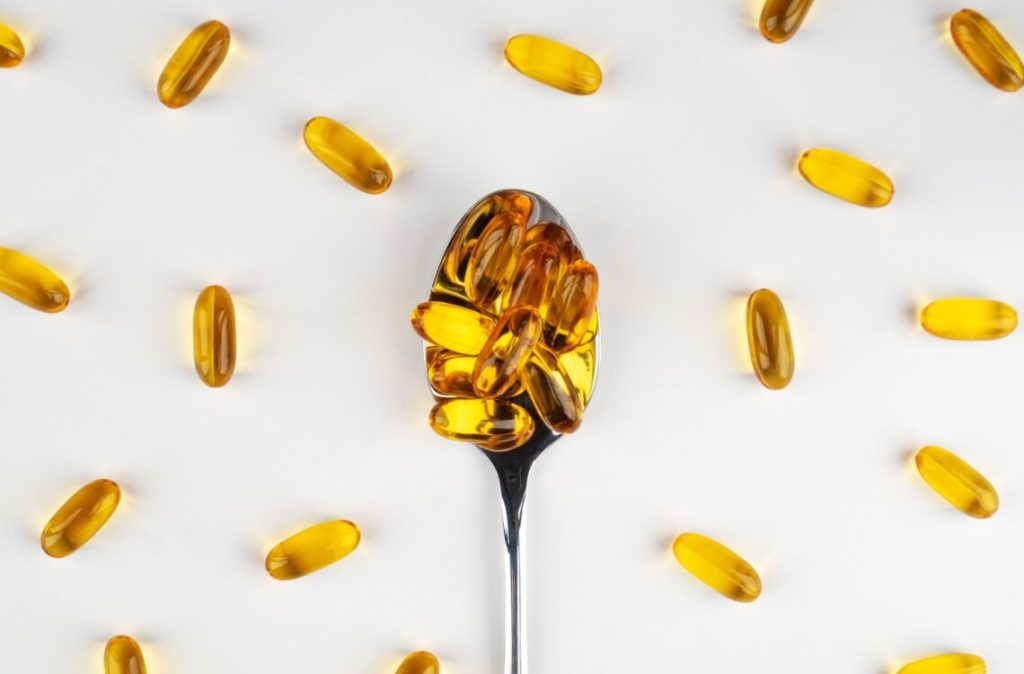Fish oil supplements are all the rage these days – in fact, they never seem to run out of popularity.
But do your kids really need them for optimal health and nutrition?
We talked with Nazatul Amira Hamzah, a certified pharmacist with over 10 years of experience in both hospital and community settings. She currently holds the position of Pharmacist and Key Account Manager at Primabumi Sdn. Bhd.
Here is her expert advice for parents who are thinking of giving their children fish oil supplements.
What health benefits can fish oil supplements provide for children?
A fish oil supplement contains certain amounts of the omega-3 fatty acids eicosapentaenoic acid (EPA) and docosahexaenoic acid (DHA).
Alpha-linolenic acid (ALA) is another type of omega-3 fatty acid, but it is present mainly in plant sources such as walnuts, kidney beans, chia seeds, and soybeans.
DHA and EPA play a variety of critical roles in your child’s healthy growth, including:
- improve brain function and mood, particularly in learning, memory, and brain development
- protect heart and eye health
- promote better sleep quality
- help reduce the risk for allergy-induced conditions such as asthma, rhinitis and eczema.
- improve behavioural disorders such as attention deficit hyperactivity disorder (ADHD).
Are fish-oil supplements safe for children?
Fish oil supplements are generally safe for children.
However, they may sometimes trigger minor problems, such as:
- Gastrointestinal symptoms like nausea, diarrhea, and indigestion
- Headache
- Bad breath
It is crucial to consult a healthcare professional before starting any supplement regimen.
You also need to ensure your child sticks to the recommended dosage to reduce the risk of side effects.
Apart from fish oil supplements, what are other sources of DHA and EPA?
DHA and EPA can be found in some natural foods, including:
- fatty fish, such as salmon, mackerel, sardines and herring.
- other seafood options, such as shellfish, mussels, oysters, shrimp and crabs
- eggs, particularly those fortified with omega-3
How do the omega-3 fatty acids in fish oil supplements compare to those found in natural food sources?
Omega-3 fatty acids from fish oil supplements are similar to those found in natural food sources.
Whole foods, on the other hand, provide extra nutrients and, therefore, more benefits for your child.
What are the recommended dosages of fish oil supplements for children of different ages?
The Food and Nutrition Board of the Institute of Medicine (IOM) USA recommends a total omega-3 (DHA, EPA, and ALA combined) intake of 500mg per day for children from 0 to 12 years months.
This requirement generally increases as the child grows.
However, there is currently no published specific dosage guideline for DHA and EPA.
Unless your healthcare expert advises otherwise, it is best to adhere to the recommended dosage on the product packaging.
Do fish oil supplements have the potential to improve any medical conditions in children?
They may be beneficial for children who suffer from certain conditions.
These include conditions like ADHD, autism, dyslexia, depression, and certain inflammatory conditions like asthma and juvenile arthritis.
However, the outcomes can differ, necessitating further research in numerous instances.
What are some signs of omega-3 fatty acid deficiency in children?
Some of the most common symptoms of omega-3 fatty acid deficiency include:
- brittle hair and nails
- dry skin
- mood swings
- trouble concentrating
- lack of energy
- poor sleep quality
You’re strongly advised to seek professional help, as these symptoms may indicate other health issues.
Are there any regulatory concerns or quality control issues I should be aware of when choosing fish oil supplements for my child?
The quality of fish oil can vary greatly among different products.
Look for products manufactured by reputable companies, free of impurities like heavy metals, and subjected to independent testing for purity and potency.
Additionally, check for safety and quality certifications such as International Fish Oil Standards (IFOS), Good Manufacturing Practice (GMP), and Hazard Analysis and Critical Control Points (HACCP).
I heard so many great things about fish oil supplements, and I’m considering giving one to my 9-year-old child. Do you think it’s a good idea?
Giving your child a fish oil supplement may be helpful, particularly if your child does not eat fish or other sources of omega-3 fatty acids.
Consulting a paediatrician or a nutritionist can help determine if supplementation is necessary based on your child’s dietary intake and health needs.
Source: Nazatul Amira Hamzah, Pharmacist at Primabumi Sdn Bhd
Disclaimer: The information provided in this article is for informational purposes only and should not be considered as medical advice from Motherhood. For any health-related concerns, it is advisable to consult with a qualified healthcare professional or medical practitioner.
For more insightful stories and fun recipes, stay tuned to Motherhood Story!
